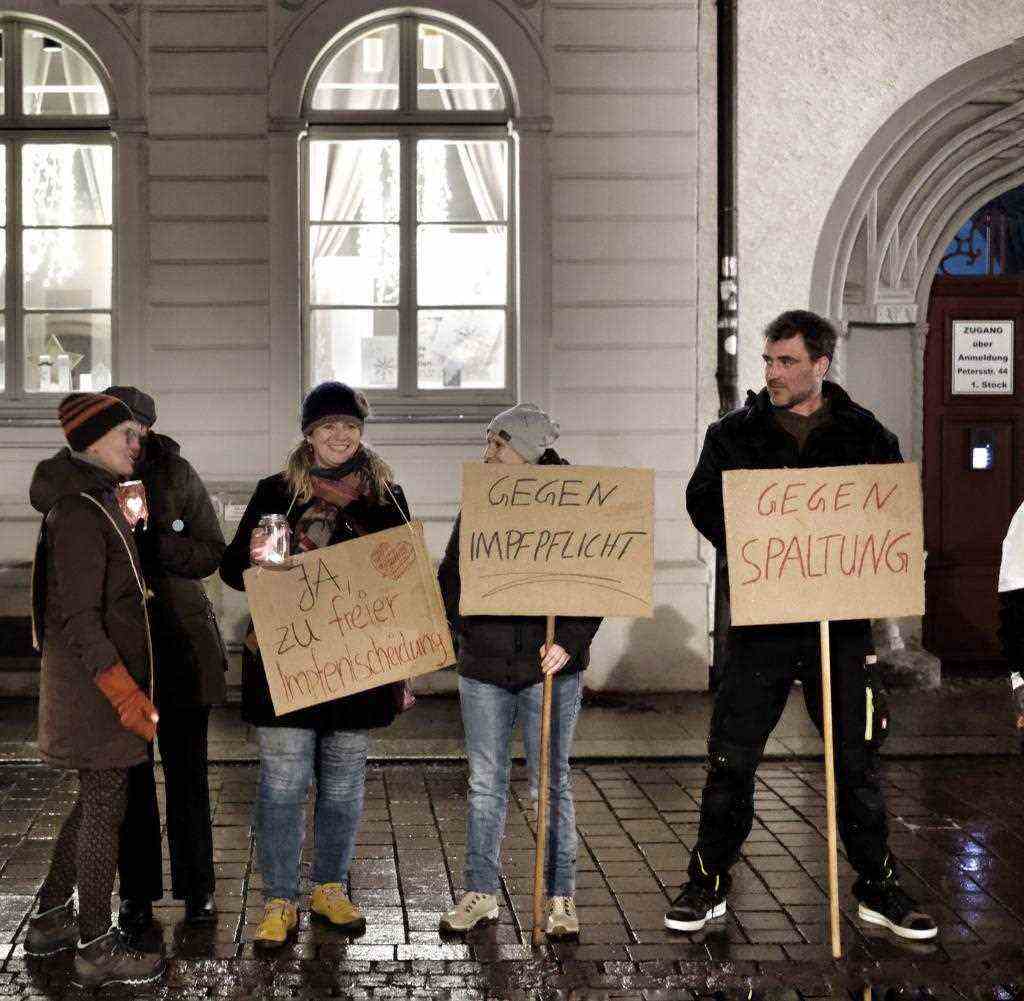EThere is no going forward and no going back in German Corona policy. The number of infections is increasing every day. Only the reaction of the politicians is missing. The general vaccination obligation announced by Chancellor Olaf Scholz (SPD) is still not in the starting blocks. What may be the future in Germany is already everyday life in other European countries. In Italy, vaccination has been compulsory for everyone over the age of 50 since the beginning of the year. In Austria there should be a general vaccination requirement from February.
The fact that such a measure will not meet with general approval in Germany became clear on Monday evening on ARD on “Hart aber fair”. The FDP member of the Bundestag Christine Aschenberg-Dugnus, health policy spokeswoman for her parliamentary group, spoke out against compulsory vaccination on the show. The journalist Michael Bröcker, editor-in-chief of “The Pioneer”, criticized this as a “panic action by politicians”. The medical historian Malte Thießen was also skeptical.
SPD Prime Minister Malu Dreyer, on the other hand, defended the approach. Just like the epidemiologist Timo Ulrichs. You have to finally “come to pot” here.
Medical historian on “Hard but fair”: “Vaccinations are victims of their own success”
“The history of compulsory vaccination is not a success story,” Thießen made clear. The historian sees “four serious side effects”. A compulsory vaccination mobilizes the people. As early as 1874, when smallpox vaccination became compulsory, there were associations and demonstrations against it. In addition, this is “a blunt sword”. Sanctions would hardly bring anything. Anyone who refuses to be vaccinated pays the fine.
It also became clear that fake vaccination certificates are by no means a new phenomenon in recent months. Already in the 19th century, after the introduction of compulsory vaccination, there was a “thriving counterfeiting industry”. In addition, compulsory vaccination is “a culture of distrust”. For all voluntary vaccinations, the vaccination rate is over 90 percent.
Thießen attributed the fact that there are still major reservations about the vaccine to its effectiveness: “Vaccinations are to some extent a victim of their own successes.” Infectious diseases such as tuberculosis have disappeared from consciousness. Very rare side effects of the vaccination would seem almost bigger than the actual disease.
Incentives yes, but which ones?
Before the Federal Constitutional Court, vaccination can only be compulsory if there are no milder means that are equally effective. Broecker had doubts about that. “Have we really tried everything to close the vaccination gap?” asked the journalist, naming mobile vaccination teams or a nationwide 1-G regulation as possible measures. He comes “rather from the incentive than from the ban.”
FDP politician Aschenberg-Dugnus also declared herself a “great friend of the incentive system”. For example, after the vaccination there could be free tickets for sporting events. As attractive as the incentive solution may sound. The proposals were not really new. And they also ignored a central question: What should still serve as an incentive for people who are sufficiently protected against death and serious illness?
Dreyer was also at a loss. She was firmly convinced that she could achieve a higher vaccination rate in the population. However, people who get an initial vaccination are now “only isolated cases”.
“If you’re vaccinated, no drama at all if you get infected”
The results of a study by the University of Berkeley indicate that omicron is less dangerous than delta. Omikron may lead to fewer hospital admissions and bring with it milder courses. So would it be sufficient to infect the population?
“Personally, I have the impression that if you are protected by vaccination, it is no longer a drama if you get infected,” said Dreyer. In doing so, the Prime Minister of Rhineland-Palatinate expressed the composure that was spreading among the population in dealing with corona infections.
Bröcker also shares the impression that “it’s not as bad as it was at the beginning”. The journalist became infected at the beginning of the corona pandemic and, according to his own statements, had a “more difficult course”. Nevertheless, he is more relaxed about the virus today.
The guests at “Hard but fair” (from left to right): Malte Thießen, medical historian; Malu Dreyer, SPD, Prime Minister of the State of Rhineland-Palatinate; Christine Aschenberg-Dugnus, FDP, Bu…parliamentarians; Michael Broecker, journalist; Timo Ulrichs, epidemiologist
Source: WDR/Dirk Borm
Letting the virus run through also leads to basic immunization in the population, explained epidemiologist Ulrichs. But: “We still have so many unvaccinated people that we cannot afford it at the moment and in the course of 2022,” explained the epidemiologist. “We haven’t done our homework yet.”
“There are many unanswered questions from doctors to lawyers”
Chancellor Olaf Scholz had already announced general vaccination requirements last year. However, the federal government has not submitted its own legislative proposal to parliament and apparently has no plans to do so. The head of government had repeatedly pointed out that the proposals should be worked out by the MPs themselves.
Dreyer saw the procedure as “a question of how one understands leadership”. Aschenberg-Dugnus also defended the government. It is a “highly ethical question”.
Bröcker, on the other hand, saw the government ducking away from the approach. “The truth is: there are many contradictions. There are a lot of open questions from doctors to lawyers,” said the journalist, “that’s the only reason why it was put in parliament.” An SPD government member told him that the general obligation to vaccinate “a quiet death “ die.
In fact, the current traffic light coalition, through its approach to compulsory vaccination, gives the impression that it does not want to take a definitive position – probably also so as not to make itself unpopular right at the beginning of its term of office.
The only thing left to hope for is that the scenario that Ulrichs described in the program does not occur. In March and April, the omicron infections could decrease. If the Bundestag only then decides on compulsory vaccination, “I doubt that all the arguments that we are discussing here will still apply”. The consequence: “We will then also have ten million unvaccinated people in the fall.” And then at the latest the discussion will start again.





